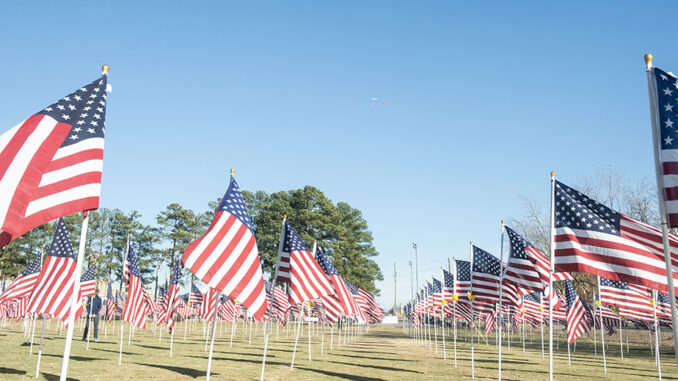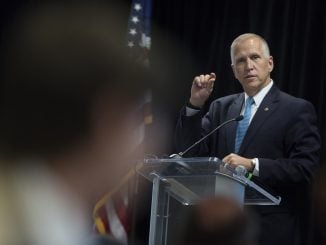
RALEIGH — On July 4, 2026, the United States will commemorate and celebrate its 250th anniversary of the signing of the Declaration of Independence.
Preparations began under the Obama administration in 2016 with Congress creating the “U.S. Semiquincentennial Commission” to plan and carry out events and festivities.
The commission is made up of 16 private citizens, four U.S. representatives and four senators, and 12 ex-officio members from the three branches of the federal government and its independent agencies, according to the America 250 website. The appointees were selected by the leadership of both parties in the U.S. House and Senate.
North Carolina Republican Sen. Thom Tillis and U.S. Reps. Don Davis (D, NC-01), Valerie Foushee (D, NC-04), Richard Hudson (R, NC-09) and David Rouzer (R, NC-07) are part of the Congressional America250 Caucus.
Commemorative events and celebrations are being coordinated by the North Carolina Department of Natural and Cultural Resources, which has chosen two overarching concepts: Revolutionary N.C. and When Are We US?
These two concepts aim to explore historical events and the ideas of freedom, civic responsibility and change.
Supporting themes include “Visions of Freedom,” highlighting movements like civil rights and women’s suffrage, and “Gathering of Voices,” incorporating diverse perspectives, and the commemoration seeks to foster a sense of common ground and progress toward a “More Perfect Union.”
The Tarheel state will kick off its commemoration activities with “Halifax Resolves Days: Prelude to Revolution” to be held in Halifax from April 12-14.
The event will be a “living history weekend” celebrating the Halifax Resolves.
During the Fourth Provincial Congress in April 1776, the North Carolina Assembly authorized its delegates to the Continental Congress to vote for independence from Britain through what would become known as the Halifax Resolves, which marked the first official call for independence by a colony.
The Resolves were unanimously adopted by 83 delegates and sent to the Continental Congress, where they played a crucial role in the drafting of the Declaration of Independence. North Carolina’s delegates, William Hooper, Joseph Hewes and John Penn, signed the Declaration. Today, surviving copies of the Resolves are held in the National Archives and the State Archives of North Carolina.
Activities this weekend include historical reenactments, armory and weaponry demonstrations, wreath-laying ceremonies, guided tours, and other presentations such as Colonial-era cooking and blacksmithing.
A full schedule of the Halifax Resolves event can be accessed through the state’s website at america250.nc.gov/kickoff or by calling the Historic Halifax State Historic Site at (252) 583-7191.
North Carolina plans to add additional events through 2033 to “reflect our state’s Revolutionary history.” Future events will include educational outreach, online resources, exhibits across the state and commemorative events.
The General Assembly also formed a semiquincentennial committee to oversee aspects of the celebrations. The committee is chaired by Sen. W. Ted Alexander (R-Cleveland) and Rep. Hugh Blackwell (R-Burke). Public members of the committee include Troy L. Kickler, Kyle J. Luebke, Jason E. Luker, Charles Batcheller Neely and Cary F. Poole.
Per the most recently enacted budget, the committee will oversee the distribution of $1 million in grants to county governments. Each grant will amount to $10,000 and be awarded to counties where the commissioners have either established a commemoration committee or designated a group responsible for organizing semiquincentennial celebrations.



